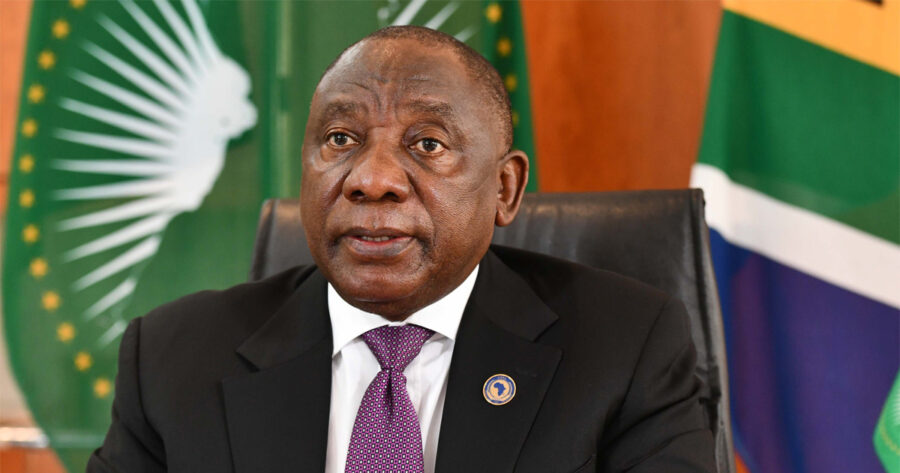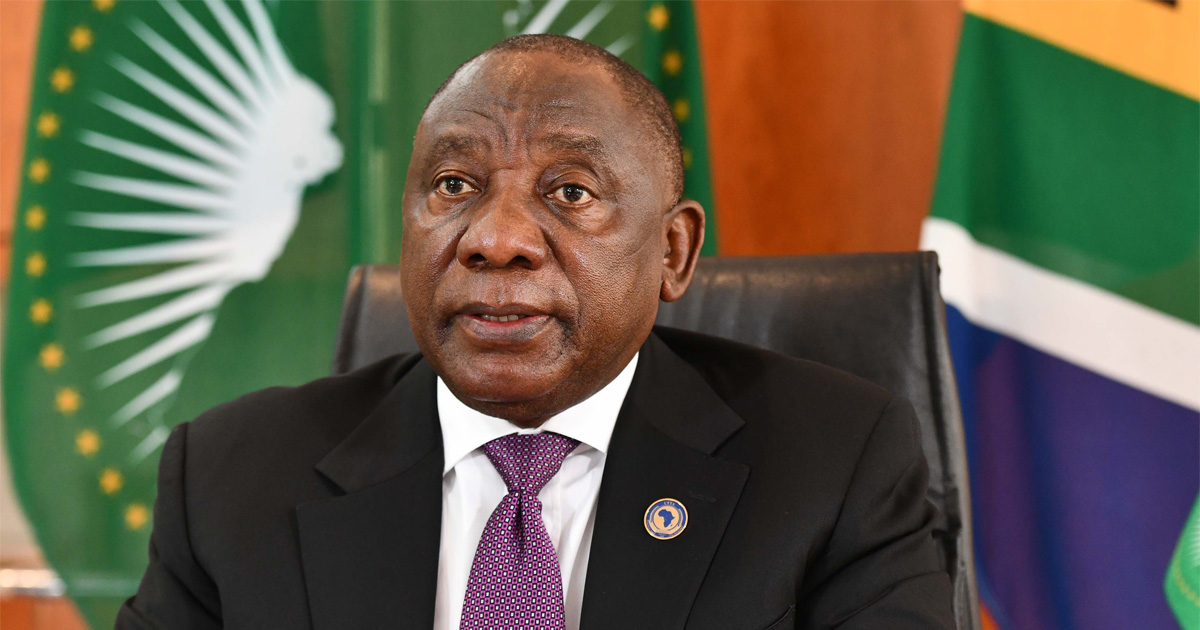
South Africa Gears up for Taxi Lekgotla, Says Ramaphosa in Weekly Newsletter
President Cyril Ramaphosa says government will continue to invest in transport infrastructure systems that will carry people safely and in a manner that will contribute to economic growth. In his weekly newsletter on Monday, the President said a well-functioning transport system could alleviate road congestion, resulting in reduced travel times, improved productivity, enhanced economic activity […]

President Cyril Ramaphosa says government will continue to invest in transport infrastructure systems that will carry people safely and in a manner that will contribute to economic growth.
In his weekly newsletter on Monday, the President said a well-functioning transport system could alleviate road congestion, resulting in reduced travel times, improved productivity, enhanced economic activity and less energy consumption and air pollution.
The spotlight is on transport infrastructure this week, as the country prepares to host the inaugural National Taxi Lekgotla in an effort to address concerns plaguing the industry.
“Upgraded transportation infrastructure, coupled with improved public transport, is a key driver of economic activity.
“Similarly, resolving the challenges facing a sector as important as the taxi industry is an important step towards transforming the public transport landscape,” said the President.
In the Economic Reconstruction and Recovery Plan, delivered in Parliament two weeks ago, the President acknowledges that improving transport infrastructure is central to economic growth and expanding industrial activity.
Government has embarked on projects to modernise and refurbish commuter rail networks, alongside the expansion of road rehabilitation and maintenance programmes.
President Ramaphosa said a formalised, well-managed and better-regulated minibus taxi system is in the best interest of not just those who use taxis daily, but it is also in the interest of the development and progress of the entire society.
This week’s Taxi Lekgotla, which will bring together government, civil society and industry stakeholders, is expected to chart the course towards a more efficient sector.
“The lekgotla will seek common ground on existing business models, safety and compliance, broader economic empowerment of operators and the issue of subsidies for taxis.
“It will also look at how to end the conflict and violence that continues to plague the industry because of competition on routes,” said the President.
Most importantly, he said, it must emerge with a blueprint for a formalised industry that plays a meaningful role in the mainstream economy and is effectively regulated.
President Ramaphosa said the taxi industry can and must play an important role in government’s ultimate objective of improving the daily experiences of commuters through the establishment of integrated rapid transport service networks in the metros, cities, towns and rural districts.
“When public transport is unsafe, unreliable and costly, it also affects economic activity. Given that about four in 10 workers use public transport to reach their workplaces, these challenges have knock-on effects on productivity, labour relations and business functioning,” said the President.
As part of the programme to build a new economy, he said government is working with all stakeholders to improve the state of public transport.
“This is necessary if we are to expand manufacturing, increase local production, stimulate small business activity and create more job opportunities. We are mindful that as households make decisions on where to live, where to work and where to study based on access to transport, businesses also make decisions on expansion and investment based on the mobility of the labour force.”
Simply put, he said, the country cannot achieve the economic growth and recovery it aspires to if people cannot get to work on time and safely.
Safety
According to 2015 figures, around two-thirds of households who use public transport travel by minibus taxi. A quarter travel by bus and 10% by train.
“In a country where the vast majority do not have access to private cars, the provision of efficient, reliable, safe and affordable public transport is critical to our people’s everyday lives.
“Unfortunately, public transport continues to be plagued by challenges.”
The President used this week’s letter to highlight two fatal road events last week, which drew into sharp focus the reality that for far too many citizens, using public transport is dangerous and can even be deadly.
The first was the accident that claimed 16 lives when a minibus taxi collided with a truck on the route between Melmoth and Ulundi in KwaZulu-Natal.
A day later, commuters had to flee for their lives on a busy highway in Johannesburg when a passenger in a minibus taxi opened fire on the driver, killing him and causing the vehicle to lose control. Fortunately, none of the other passengers were injured.
“Many of our people’s experiences with public transport are not positive. Those reliant on trains have to contend with daily delays, disruptions and prolonged closures of essential lines.
“Furthermore, rail infrastructure in most cities only covers older parts of cities and has not kept up with new city development,” the President said.
He said unroadworthy vehicles, unsafe driving, speeding and overloading and other practices are persistent problems in the taxi industry. Many people also fall victim to crime on trains, taxis and buses.
“With many people living far from places of work, transport is very expensive for low-income households,” the President said.
A report by Statistics South Africa found that more than two-thirds of households with the lowest income spend more than 20% of their monthly household income on public transport.
The survey found that transportation by taxis is the most expensive mode of public transport, followed by trains and buses.
“Since taxis are the primary means of public transit for people across all provinces, we are giving urgent attention to the problems in the industry,” the President said. – SAnews.gov.za
